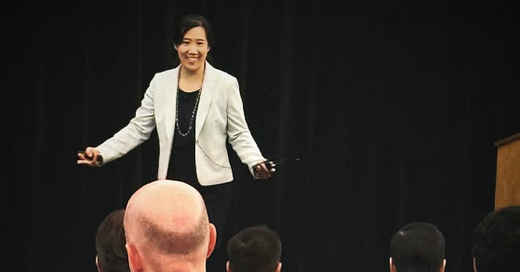I've always had this quirky habit of asking people about their favorite books. It's partly because I'm genuinely curious, and partly because it's infinitely less dull than talking about weather or traffic. And I always, always send a quick note after I finish a book, pointing out something valuable or insightful that stood out. If I genuinely loved it, fantastic. If I didn’t? I still send that note, because even the most tedious book usually has something worthwhile—a clever turn of phrase, or a surprising idea. Besides, no one enjoys hearing that their favorite book was painfully boring.
This little ritual has quietly enriched my mental models, those internal frameworks that help us interpret and navigate the world. It’s also sparked conversations that have strengthened connections in unexpected ways.
But I've never actually enjoyed non-fiction much. Ironic, right? I mean, I write non-fiction. My entire career revolves around research, data, and findings. Yet every time I picked up a non-fiction book, I felt like I got the entire point by the end of chapter one. Everything beyond that felt like an endless loop of anecdotes and fluff. Give me a juicy novel (or even a memoir) instead—stories about real or imagined lives, their triumphs and disasters—and I'm hooked. But straight-up, "here's what you need to know" non-fiction? Always felt like homework.
My anti-non-fiction stance finally softened when I met Jeff Sigel. While explaining my conundrum to him, he asked me to share just one useful takeaway from each recent non-fiction book I'd read. To my own surprise, I instantly rattled off a short tagline for each: “small habits add up to big results,” “talent matters—but perseverance matters more,” and my personal favorite, “there’s no formula for managing chaos—only courage.”
That was my epiphany. Maybe I'd been unfairly tough on non-fiction all along. Maybe the problem wasn’t the books—it was my expectations. Not every book, or every relationship, needs to be transformational. Books, like people, come into our lives for various reasons. Some come to tackle a specific problem or spark a needed change. Others gently guide us through certain phases, helping us pivot, scale, or simply stabilize, but they're not necessarily meant to stay forever. And just a rare few evolve into lifelong companions, growing alongside us as our vision expands. Understanding this freed me to appreciate each book for what it uniquely brings.
Now, I approach non-fiction differently. I no longer demand earth-shattering revelations from every page. Instead, I appreciate the quiet power of small insights—the subtle shifts in perspective, gentle nudges toward better habits, and thoughtful guidance that quietly reshapes my decisions. Each book, fiction or not, adds something valuable to my mental toolbox, helping me navigate life's twists and turns with a bit more wisdom.
So these days, my bookshelf is more like a friendly potluck—some dishes richer than others, but each bringing something worthwhile to the table (come on, you knew I couldn't resist at least one food analogy). Plus, my newfound openness to non-fiction has significantly upped my trivia-night game. And there's nothing quite like impressing friends by casually dropping obscure facts about penguins or productivity. Who knew homework could actually be fun?
Edge Thought of the Week:
Your challenge for this week: Pick up that book you've been dodging (we all have one lurking around). Write down the simplest yet most useful insight you found. Don’t worry about uncovering life-altering wisdom. Appreciate the quiet power of small ideas that slowly reshape your perspective. Then share your newfound insight with someone else, because even the smallest idea can grow exponentially when shared.
Until next time,
Laura





I have this book called "How to Read a Book" by Mortimer J. Adler & Charles Van Doren.
I bought this book at least ten years ago, and have never managed to finish it. My hypothesis is that not all non-fiction books are meant to be read cover-to-cover.
For this book, for the parts I have read, my takeaway is that, according to the framework presented by the authors, I personally read at an elementary level, that is: I can read on my own and is prepared to learn more about reading. But I do not yet know how to read beyond the elementary level.
I'll try to finish reading another section of this book this year - steady, baby steps, and I'll be done soon enough!
💯 Laura! Writing doesn't have to be over the top performative and dramatic to teach us something. It's funny because I primarily write nonfiction and also that's generally what I read. But I do love me some dramatic television and movies 😊